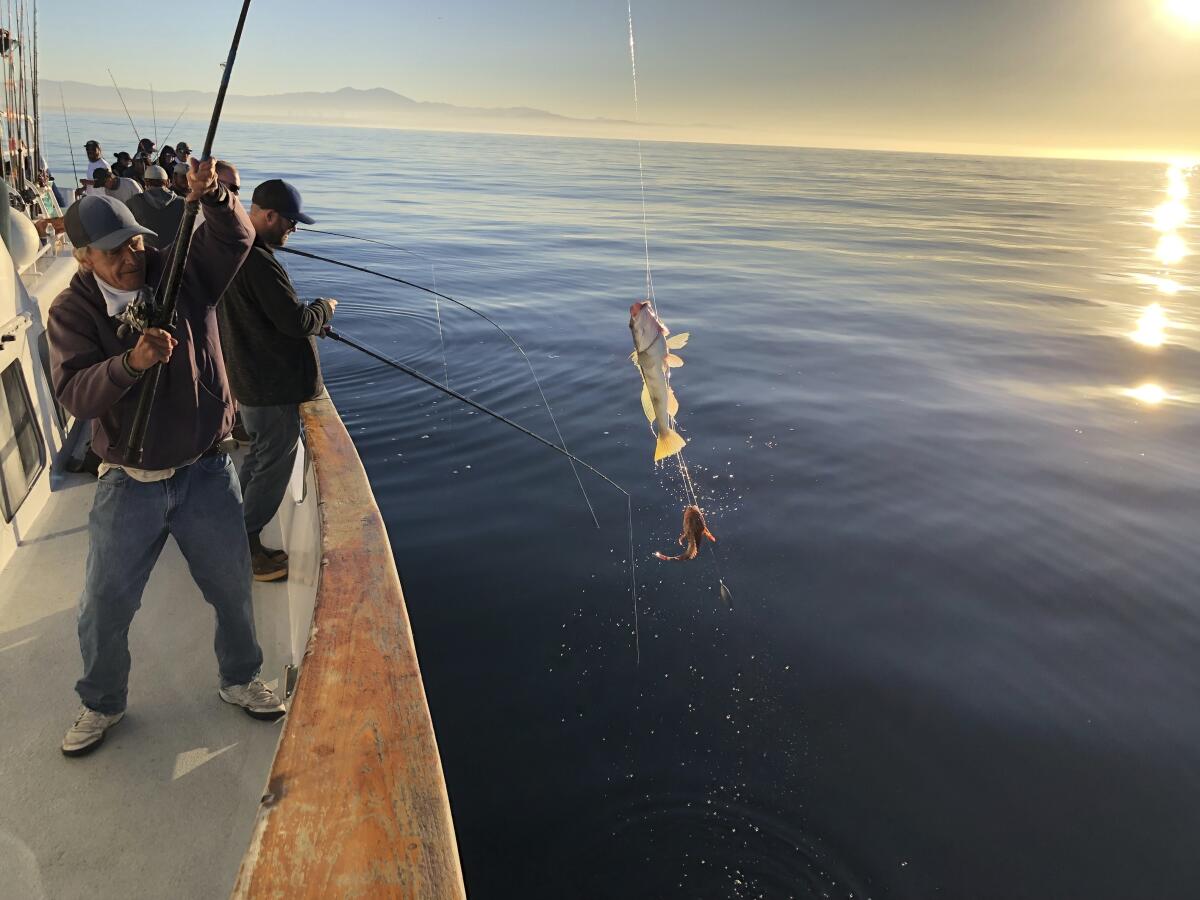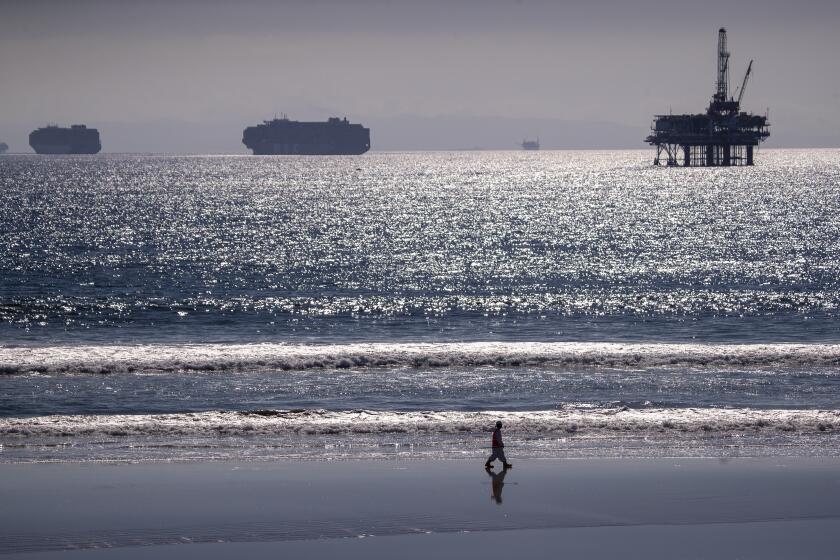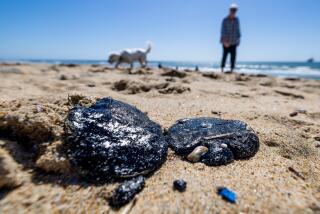Fishing in Orange County resumes after oil spill near Huntington Beach

- Share via
Fishing can resume along the Orange County coast Tuesday afternoon, after the California Department of Fish and Wildlife determined it is safe to eat seafood taken from the waters after an oil spill in early October.
An estimated 25,000 gallons of crude oil spilled into the ocean from a ruptured pipeline off the coast of Huntington Beach. Sticky black crude washed ashore along beaches across Southern California, and the Orange County shoreline was closed to recreational and commercial activities, including surfing, swimming and fishing.
The return of fishing is a relief for many, including Orange County Supervisor Katrina Foley, whose district includes the coastal cities of Huntington Beach and Newport Beach.
“This oil spill immediately put a halt to the operations of many small businesses in our community whose livelihoods depend on the ability to fish off our Southern California coast,” Foley said in a statement. “The business owners I have had the privilege to hear from in the last few months are resilient, and my hope is that overcoming this final hurdle will finally help them get back on their feet.”
John Doughty, owner of JD’s Big Game Tackle in Newport Beach, estimates he lost $10,000 to $15,000 in sales during the fisheries closure.
“We have such a short season for business here,” Doughty, 74, said Tuesday when reached by phone. “The season typically goes from June to September, maybe into December on a good year. You need those profits to keep you going through the rest of the year.”
Doughty, whose shop has been in Newport Beach for 44 years, said this year’s closure was an example of government overreach.
An oily sheen that appeared Saturday morning was likely a residual leak from the ruptured pipeline that fouled Orange County beaches, officials say.
“I understand the reality of the oil spill and why there needed to be closures,” Doughty said. “I could even understand a week- or a two-week closure. But for the last month? That’s ludicrous.”
There are some losses that cannot be measured, such as when a hobby fisher needs to relieve stress but cannot get out onto the water.
“What does that do to their home life?” Doughty asked. “And besides, they can bring home the bacon with some fresh fish. All of that goes to a person’s state of mind.”
Amplify Energy, the Texas company that operates the pipeline, is facing multiple federal lawsuits filed by businesses, residents and property owners hurt by the spill.
And the environmental fallout includes the deaths of bottlenose dolphin, three California sea lions and an array of birds, according to the UC Davis Oiled Wildlife Care Network.
The fisheries closure, issued Oct. 3, stretched 45 miles along the coast and banned the taking of fish and shellfish from Huntington Beach to Dana Point, including all bays and harbors from Seal Beach to San Onofre State Beach.
State officials determined it was not healthy to consume fish taken from the water after the spill because of chemicals in oil that can increase the risk for cancer. From Oct. 14 to Nov. 3, officials with the Office of Environmental Health Hazard Assessment tested seafood taken from the shore and at sea for chemicals found in crude oil that can build up in animals, such as polyaromatic hydrocarbons.
“After thorough seafood testing, OEHHA has determined that there are no longer potential public health hazards associated with seafood consumption as a result of the October 2 oil spill,” Department of Fish and Wildlife Director Charlton H. Bonham wrote Monday.
More to Read
Sign up for Essential California
The most important California stories and recommendations in your inbox every morning.
You may occasionally receive promotional content from the Los Angeles Times.












